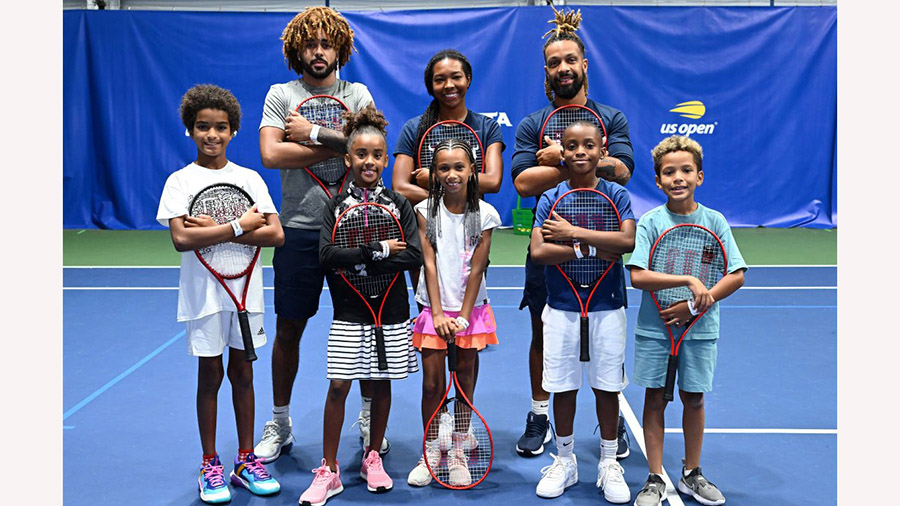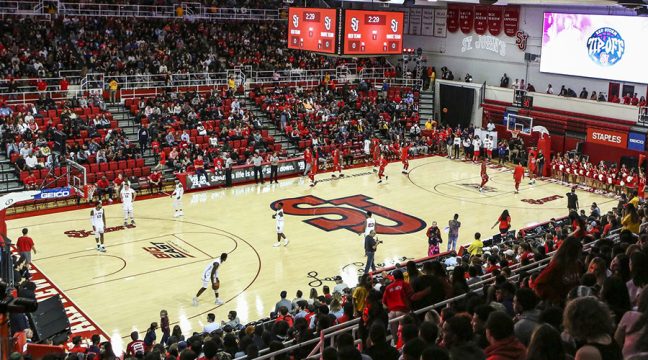The USTA, the national governing body for the sport of tennis in the U.S., announced a multi-faceted growth strategy to make the U.S. the number one tennis-playing nation in the world by 2035 — increasing the tennis-playing population to 35 million players or 10 percent of the total U.S. population.
The growth strategy is the vehicle for realizing the USTA’s new mission: “Growing tennis to inspire healthier people and communities everywhere,” focusing on player retention, coaches and courts.
“When players have exceptional experiences, we all succeed. When the delivery system flourishes, tennis grows. At the USTA, our role is to be a connector of excellence across the entire tennis ecosystem,” said Lew Sherr, USTA chief executive officer and executive director. “By ensuring players new and old have access to the programs, coaching and facilities they need to progress on their tennis-playing path, we can continue to grow the game and deepen its positive impact — creating new opportunities for human connection and improving the physical, mental and emotional health and safety of our communities, both on and off the court.”
Over the past four years, the USTA reported that “tennis participation in the U.S. has grown 33 percent, fueled by new players taking up the sport. The growth stretches across various communities, with participation among Hispanic/Latino players and Black/African-American players growing by 105 percent and 63 percent respectively, over the past five years.” However, despite the surge, many try tennis and choose not to continue. Recognizing that Americans play tennis at various ages and abilities, across different types of facilities, and in and outside organized play, the USTA said it “wants to meet them where they are.”
The USTA is taking the challenge head-on with a new strategy aimed at continuing the sport’s uptake and better-retaining players by supporting local communities and providing options for tennis formats, equipment and programs that enable players coming to the game to become players for life.
The USTA’s strategy includes making a generational investment in strengthening tennis by:
- Creating and scaling programming that keeps new and returning players on the court for life includes rolling out a portfolio of competitive and casual play programs to mee the needs of all ages and interests.
- Expanding the availability of quality coaching at all levels, increasing the number of SafePlay-approved coaches to over 80,000 nationwide, including professional coaches and community-level instructors who give on-court instruction to grow player participation. The aim is to get more coaches in parks, public facilities and schools, provide additional support for volunteers in the roles they choose to play in their communities and create more career opportunities for those who choose to make coaching a profession.
- Maximizing court availability to keep pace with participation through its partnership with local governments, parks and recreation facilities, school boards and local clubs to build, renovate and protect tennis facilities across the U.S. while maximizing existing infrastructure through enhancements that extend playable hours and lengthen the tennis season. The goal is to ensure there are 350,000 courts (traditional and non-traditional playing spaces), one for every 100 players, to help increase play in local communities focused on underserved areas. As part of its effort, the USTA will support facility operators with the tools needed to effectively run efficient and profitable operations, including programming, technology, data intelligence, coaches, and equipment.
- Supporting and elevating the next generation of tennis players, empowering up-and-coming competitors to achieve their full potential and providing a clearer path for top junior players to reach the pinnacle of the sport and motivate “millions more” to follow in their footsteps.
“Tennis is the healthiest sport in the world. In fact, tennis extends our lives by almost ten years, more than any other sport or exercise, while improving cognition, psychological well-being, and strength and agility. We can’t let current or future generations miss out on these life-changing benefits,” said Dr. Brian Hainline, USTA chairman of the Board and president. “Whether it’s the thrill of watching professional play or swinging a racquet on a community court, it’s important to help ensure that communities everywhere have access to the life-enhancing benefits of our wonderful sport.”
For more information about the USTA’s growth strategy and updates on its progress, go here.
Image courtesy USTA










